See what teachers and SEL implementers had to say in our latest broad usage survey.
Since the inception of Harmony SEL, researchers have examined the benefits of our program in several studies (e.g., DeLay et al., 2016; Hanish et al., 2016; Miller et al., 2017). The initial research found that students who participated in Harmony experienced a variety of positive results. These outcomes include increased writing and math performance, friendship development with diverse peer groups, relationship-building with feelings of inclusion, and engagement in school, as well as decreases in teasing and aggression.
From the research, we know that Harmony produces positive effects in youth. We also want to understand the perceptions of educators who have used the program. In 2019, a group of 999 teachers, school counselors, instructional coaches, SEL learning specialists, speech-language pathologists, and site coordinators responded to a survey about their use of Harmony SEL from the Center for Research and Reform in Education at Johns Hopkins University. This easy-to-read infographic presents educators’ survey responses reflecting their reactions to Harmony, perceived impacts on students’ competencies, and how often they used Harmony resources. Download and review the infographic here:
Learn more at harmonysel.org and start implementing SEL with the
Harmony Online Learning Portal.
New Research Suggests Consistent Implementation Leads to Success
Read the latest brief from Harmony Academy and Johns Hopkins University
Ever wonder how consistently implementing healthy learning practices influences student outcomes as they learn and grow? Social, personal, and academic development is a priority among educators and school leaders who may activate many strategies and supports, such as the Harmony Curriculum, to reach their goals.
We want practitioners and administrators to be successful, so we partnered with researchers at Johns Hopkins University to take an in-depth look at what Harmony schools experience when they use the program over time. By observing a group of Harmony Showcase Schools, researchers found out how principals, teachers, and students responded to Harmony in their first and second years of implementation. We found that teachers implemented the program more consistently and with improved implementation in their second year.
While putting a schoolwide program like Harmony into practice can be challenging, especially during the initial execution, the research in this study suggests that when schools sustain their implementation past the initial growing pains, they find even more benefits beyond the first year. Read the full research brief to learn how educators and students engaged with Harmony in both years one and two. Based on the findings, you will discover potential implications to take back to your setting to successfully implement Harmony healthy learning.
Learn more at harmony-academy.org
Read Healthy Learning Best Practices for School Leaders and Principals
Access the latest research-to-practice brief from Johns Hopkins University and Harmony Academy.
School leaders have a clear role to play in supporting healthy learning within their schools and with their out-of-school time partners. Many school leaders want to implement healthy learning strategies but face key challenges when they attempt to integrate this programming into their school structure. Common challenges include lack of instructional time, inadequate implementation support, and limited common knowledge of healthy learning practices among teachers and support staff. We partnered with Johns Hopkins University to find research-based solutions and practices that school leaders and principals can activate for successful Harmony-Academic integration and outcomes, particularly when schools and communities implement the Harmony Curriculum.
Download our latest research-to-practice brief, full of best practices that support schoolwide implementation of healthy learning programs and practices.
This new research gives particular attention to strategies and research support related to Harmony, an evidence-based healthy learning program affiliated with National University, and to other approaches used by school leaders nationally, to promote effective implementation of Harmony-Academic integration in their schools. This report builds on work presented in an earlier brief developed for classroom teachers (Reilly, Yoder, Ross, et al., 2021). Access the brief for teachers here.
Learn more at harmony-academy.org.
Harmony And Johns Hopkins University Share Healthy Learning Best Practices
Harmony And Johns Hopkins University Share Healthy Learning Best Practices
Download the latest research-to-practice brief on the components of effective social, personal, and academic development..
Now more than ever, educators want strategies to support the social, personal, and academic needs of their students. However, it is not always clear where to start, or which active ingredients are needed for effective healthy learning programs. Fortunately, research demonstrates what classroom teachers need to understand about effective strategies that promote the social, personal, and academic development of students.
In a new research-to-practice brief, researchers and practitioners from Johns Hopkins University and Harmony Academy explore what Harmony entails, its research base, and most critically, the best practices for implementing Harmony in contemporary classrooms.
Ready to enrich your learning community? Download the full article at no cost to inform healthy learning implementation in your classroom or district.

Do you want to bring Harmony to your school or district? Learn more on our website harmony-academy.org.
9 Educators We’re Celebrating for Women’s History Month
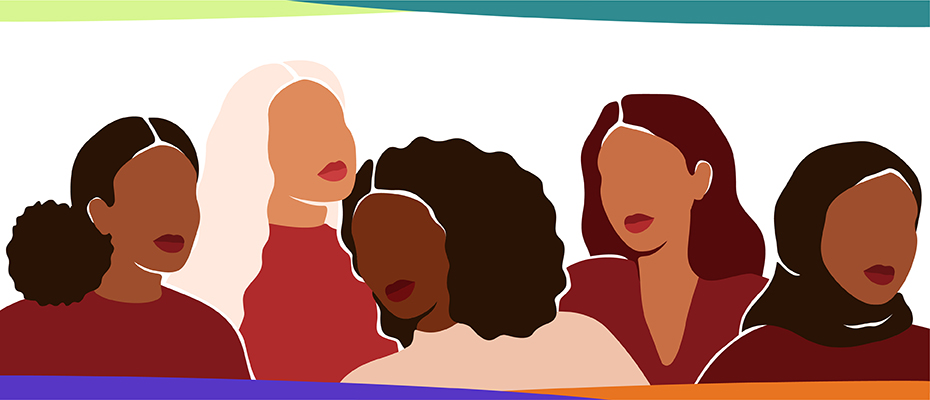
Wednesday, March 03, 2021
Learn more about the women who have influenced our team…
March is Women’s History Month, and our teams at Harmony Academy are celebrating women who have shaped the field of education and championed social, personal and academic learning. Get to know the people behind our programs and the women who inspire us to #ChoosetoChallenge!
Charlotte Danielson
Ask Elle Essenmacher which women have inspired her as an educator, and she’ll tell you Charlotte Danielson! Founder of the Danielson Framework for Teaching, Ms. Danielson has spent more than 50 years as a leader for teacher preparedness and development around the world. As a Strategic Accounts Advisor, Elle has seen the positive influence of Ms. Danielson and the Danielson Group’s hard work in the lives of students and teachers in the field.
Mary Catherine Swanson
Josh Pauly, an ambassador in Minnesota, looks up to Mary Catherine Swanson, the founder of AVID, an approach that has made college more attainable for millions of students. Josh reflects on the influence of Ms. Swanson on his work with Harmony, “I see Harmony as being a similar vessel to AVID, as both provide students with opportunities and teach them skills that will help them in school and in life.”
“Once our students find their voices, there’s nothing they can’t achieve.”
– Mary Catherine Swanson
Fanny Jackson Coppin
Jakotora Tjoutuku, an implementation specialist in New York City, celebrates Fanny Jackson Coppin, the first Black teacher at Oberlin Academy (now Oberlin College). Ms. Coppin was born into slavery and as an adult she blazed a trail for women and Black students to pursue education. Jako says, “What inspires me about Fanny Jackson Coppin is how much of a well-rounded and full life she led. She was not only an inspiring educator, but very involved in her church and community.”
Maria Montessori
Shannon Smith, a regional manager for Harmony, has seen the benefits of encouraging students’ autonomy in her education journey. Shannon’s approach to learning has been influenced by Maria Montessori and her advocacy for equipping teachers and students with the tools and instruction they need to succeed.
“The child is endowed with unknown powers, which can guide us to a radiant future.”
– Maria Montessori
Gabriela Mistral
Harmony’s Senior Manager of Partnerships, Veronica Calvo, looks up to Chilean educator and writer Gabriela Mistral, who said, “Many things we need can wait. The child cannot. To him we cannot say tomorrow, his name is today.” During the early 20th century, Ms. Mistral worked to expand access to education and develop social and economic equity for young students all over Chile and throughout the world. In 1945, she became the first Latin American writer to win the Nobel Prize for Literature.
Helen Keller
Harmony National Director, Lauren Puzen’s respect for Helen Keller’s achievements has grown along with her own development as a public health educator. “As a child I remember learning of Helen Keller and her story felt heroic, something that I knew changed the world with an individual’s actions. Today I realize the complexity of structural inequity she faced, and how her lifting her voice for others takes true courage, focus, and perseverance.”
“Life is a succession of lessons which must be lived to be understood.”
– Helen Keller
Dr. Teri Marcos
Some of our role models have directly influenced our own education journeys. This is the case for Amanda Rothengast, Senior Manager, Educator Advocacy. Amanda credits Dr. Teri Marcos, Professor and Interim Academic Program Director, Ed.D. in Organizational Innovation at National University, for encouraging her to pursue the next chapter in her education as a Ed.D. candidate. Dr. Marcos works extensively to understand and support the needs of high-performing, low socioeconomic communities.
Mary McLeod Bethune
Our acting Program Manager of Harmony John Pickens names Mary McLeod Bethune as one of his heroes. Ms. McLeod Bethune is known for founding schools for African American girls and boys in Florida. Weaving together education, philanthropy, and civil rights advocacy, she helped children succeed and set a strong example of Black achievement and the power of learning throughout the country.
“The progress of the world will call for the best that all of us have to give.”
– Mary McLeod Bethune
Ann Soldo
Harmony Ambassador Sasha Breeden comes from a family of influential women in education for three generations and counting! Sasha’s grandmother Ann Soldo started it all — throughout her career, she led as a teacher and a principal in Watsonville, California, where a school is named after her. Ms. Soldo also held office as the first woman Mayor of Watsonville, California!
Thank you to all the women leaders and educators who invest time and energy in shaping a bright future for our students. We celebrate all of you! If you want to help your students talk about gender and friendship, the Harmony Lesson “Talk It Out” is a great place to start!
*These are the opinions and perspectives of the individuals and do not necessarily represent the opinions and perspectives of Harmony Academy National University.
My First Grade Teacher Taught Me About SEL
Now She’s 102 Years Old, and I’m Still Learning from Her
by Claudine S. James
Malvern Middle School English Teacher, National Board-Certified Teacher, 2019 Arkansas Teacher Award Winner
Fifty years ago, when I entered her classroom in January of 1974, I had no idea my first-grade teacher, Mrs. Remley, would provide a model for social emotional learning.
Born in 1917, she started teaching in 1937 and her memory is unrelentless. Mrs. Remley recalled not having electricity in her home until after graduating high school in 1935. Their family earned the money to pay the $1 monthly electric bill by milking cows and separating cream. She had to wait until the summer of 1936 to begin college because her family, like others across the United States, was reeling from the economic hardships of the Depression. After attending college and earning 45 credit hours, she returned to her hometown and taught school for one year. She then taught in several rural districts throughout the state before securing a teaching job at North Malvern Elementary in Malvern, Arkansas.
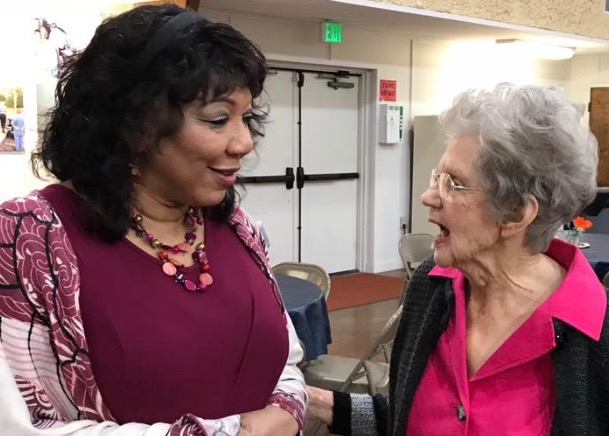
Mrs. Remley said under the leadership of Principal Eudora Fields, teachers were encouraged to develop and improve relationships with ALL students. However, it wasn’t until 1964 that the school was integrated and received its first African American students. She explained, “The memories of integration over fifty years later, have not escaped me.”
Mrs. Remley recalled that the first African American student was transferred to her room because the principal thought Mrs. Remley could provide a nurturing relationship to ensure the academic development of the student was not hindered.
That same empathetic spirit is what greeted me when I entered her classroom in January of 1974. As a shy seven-year-old, I began attending this neighborhood school.

Entering a classroom with new faces staring at me was horrifically frightening. One of my new classmates recognized me and came to greet me as Mrs. Remley introduced me to the class. “I know, Claudine,” the student said, “her grandfather cleans my dad’s business.” I was already burning inside with fright and nervousness, but those words, from a harmless six-year-old, crept down my spine sending shivers throughout my body and made me want to disappear and forget this momentous day ever began. But Mrs. Remley’s quick and kind response and her caring actions afterward instantly instilled confidence in me.

Years later, on graduation day, as my classmates and I walked across the field to receive our honor diplomas, the memories of my first day in Mrs. Remley’s class resurfaced. I wondered if Mrs. Remley was aware of how her actions had positively influenced my emotional and academic growth. I met with Mrs. Remley a couple of months ago. I was able to talk with her and I thanked her for being a significant part of my initial growth. Mrs. Remley was elated to learn this and shared her personal motto and approach to working with students: “First, I cared about students; secondly, I let them know I cared and then thirdly, I meant what I said!”
Mrs. Remley cared enough to be intentional in embracing the needs of ALL of her students. I am living proof that teachers’ actions change students’ lives.
How to Think Different
By Tom Whisinnand, 2019 Grand Prize Award Winner
In my classroom, I have these posters prominently displayed. Each one features an individual who is responsible for changing our world in some way: Albert Einstein, Jim Henson, and Amelia Earhart as well as other leaders. They all have had an incredible impact on our society, and you might also call them “inspirational.” Not all of their journeys were easy and, in some cases, the magnitude of their impact on the world went unnoticed for a long, long time.
In the 1990s, Apple Computers created an ad campaign entitled, “Think Different.” That campaign celebrated many individuals who did exactly that — they thought differently. One of the commercials in this campaign features some of the same people on the posters in my classroom, celebrating their persistence to change the world.
Is There a Link Between Inspiration and Idealism?
So, just what is it that caused these people to continue to “Think Different”? What caused them to persevere through tough times and hardships? How did they maintain their drive when obstacle after obstacle seemed to appear in their way? I have started to think, perhaps each of these individuals was an idealist. They never lost sight of the vision they initially had. They allowed their ideals to guide them instead of being weighed down by the practical limitations of their situations.
As I considered the link between idealism and inspiration, I wondered if the people who I consider inspirational in my community are also idealists. I decided to check in with a few people who I feel are successful to see if they would describe themselves as idealists.
Three People in My Life Who Think Different
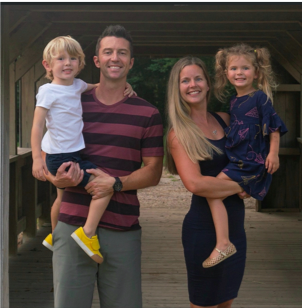
The first person I checked in with, Tim McGee, is a successful real estate agent in Omaha, Nebraska. Tim was quick to identify himself as an idealist. From an early age, Tim has not wavered from reaching his goals. He was constantly striving to reach whatever benchmark of success he determined to be next in his life. Even today, he doesn’t let one setback determine his outlook on the next goal.
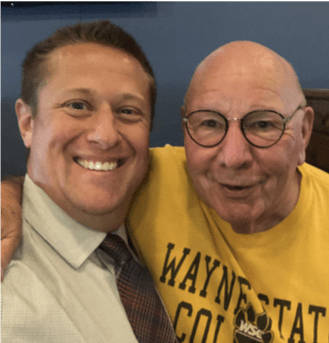
Next, I spoke with a long-time mentor and friend, Dr. Dennis Lichty, from Wayne State College. Dr. Lichty was a huge inspiration to me when I was completing my undergraduate degree, constantly modeling what it looked like to be a caring teacher.
Dr. Lichty wasted no time identifying himself as an idealist. In the many years he spent in the classroom and doing work for the Nebraska Education Association, he would always wake up believing that “today is going to be better than yesterday.” And each day Dr. Lichty’s students demonstrated that his idealism was not unfounded.
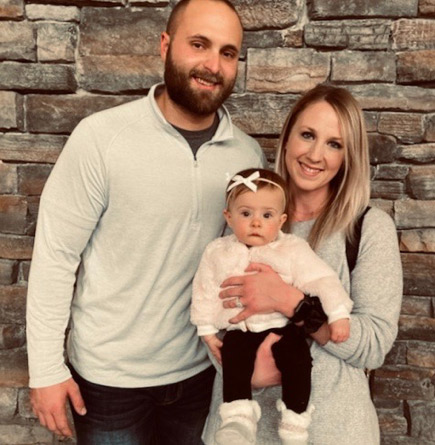
Finally, I asked the amazing counselor at Reagan Elementary about the connection between inspiration and idealism. Her name is Kaleigh Paben, and have I mentioned that she is AMAZING? Kaleigh is always positive and, even when she is dealing with some really tough student issues, she remains calm.
Like the two individuals before her, Kaleigh wasted no time in identifying as an idealist. She expressed the idea that humans are innately good and that being an educator allows us a front row seat to see just how people develop into better versions of themselves.
Become an Inspiration
Here is my takeaway from the conversations I’ve had about idealism and inspiration: As educators, we are familiar with some sort of idealism. At the beginning of the year we seem to be comfortable with clearly communicating the ideals of expected classroom behavior to our students. We also often come into a new school year filled with idealistic views of how wonderful that year will be. We look at each of our students through idealistic lenses and believe that they are capable of anything. We feel like a real inspiration to our students.
Somehow, about halfway through the year, we seem to lose that idealistic view, and the many practicalities of running a classroom or school push away the idealism that once thrived within us. We forget how awesome it is to be a teacher. We forget that we, as Kaleigh said, get a front row seat to see just how people develop into their best selves.
As educators, we must not let setbacks deter us from following our ideals. We must, as Tim does, keep looking for the next opportunity to demonstrate just how strongly we believe in ourselves. Imagine if the people on my classroom posters hadn’t let their ideals drive them. Our world would not be the same.
So, please “Think Different.” Let your ideals come through in your classroom and school. Follow those ideals with all you are. There will be disappointments and let downs along the way, but keep pursuing the ideals that brought you into education. I believe that by chasing your ideals and seeing the potential in others, YOU become an inspiration.
ASU GSV Schedule 2019
ASU GSV Panel Session: Dr. Cunningham
Bending the Arc of Human Potential Through Radical Scaled Online Learning Models
Room: Harbor B, Manchester Grand Hyatt, San Diego
Tuesday, April 9, 2019, 2:00 PM PT
Length: 40 minutes
Following the advent of MOOCS a decade ago, the non-profit university sector has made enormous strides in creating scaled learning delivery leveraging online models. A group of prominent academic leaders debates the future of online learning and what’s the next big thing.
- Moderator:
Mitchell Stevens, Director, Center for Advanced Research through Online Learning, Stanford Graduate School of Education - Panelists:
- Michael R. Cunningham, Ph.D., Chancellor, National University System
- Don Kilburn, CEO, UMassOnline
- Zvi Galil, Dean, Georgia Institute of Technology College of Computing
- Betty Vandenbosch, Chancellor, Purdue University Global
- Vikram Jandhyala, Vice President for Innovation Strategy, University of Washington
National University/Sanford Programs Sessions
GASLAMP C ROOM—2nd FLOOR SEAPORT TOWER
Monday, April 8th
2:00pm-2:45pm
Session: K-12th Extended Learning
Trauma-Resilient After-School and Summer Learning Programs: A Vision for Transformational Change
Half of public school students in Los Angeles report moderate to severe traumatic stress symptoms. After-school and summer learning programs have always been dedicated to positive youth development, but LA’s BEST Afterschool Enrichment Program has realized that to truly address the impacts of trauma, we must go deeper. In this session, we will discuss how we embraced a trauma-resilient approach and Harmony SEL’s social emotional learning program to reinvigorate a large-scale expanded learning system, equip staff to care for themselves as well as students, and transform not only our programs but also our systems and culture.
- Eric Gurna, President and CEO, LA’s BEST Afterschool Enrichment Program
Monday, April 8th
3:00pm-3:45pm
Session: K-12th Leadership Development
Finding a Network of Opportunity In LA Unified
LA Unified is committed to an equity agenda of access, innovation, and acceleration. Together we will discover, reflect, and engage in ways that connect research, practice, and heart. Let’s embrace our collective commitment to ensure that students are at the center in this lively session.
- Frances Gipson, Ph.D., Chief Academic Officer, LA Unified
Monday, April 8th
4:00pm-4:45pm
Panel: Pre-K-12th Healthy Learning
A Community-Based Approach to Trauma and Healthy Learning
A panel of experts discusses strategies and interventions used to address the healthy learning environments needed by all children. You will learn about successful frameworks that utilize tools to effectively address childhood trauma.
- Dr. Marc Brackett, Founding Director, YALE Center for Emotional Intelligence, YALE/RULER
- Dr. Heather J. Clawson, Chief Program and Innovation Officer, Communities In Schools National Office
- Elizabeth Cook, Senior National Advisor – Social Emotional Health, Alliance for a Healthier Generation
- Eric Gurna, President and CEO, LA’s BEST Afterschool Enrichment Program
- David Adams, Director of Social Emotional Learning, The Urban Assembly
Tuesday, April 9th
10:00am-10:45am
Panel: Higher Education
Precision Education: Delivering a Tailored Educational Experience to Each Student
In this discussion, we will share a model of delivering education in an adaptable platform capable of considering the specific needs of each unique learner, informed and guided by evidence-based data analysis.
- Dr. Huda Makhluf, Interim Director and Chief Academic Officer, Precision Institute at National University
- Jonathon Chillas, Vice President, Chief Data Officer, National University and Precision Institute
- Meghan Fager, Psychometrician and Research Fellow, Precision Institute at National University
- Greg Wilt, Special Assistant to the President at National University
Tuesday, April 9th
11:00am-11:45am
Session: Higher Education
Leveraging Predictive Analytics to Identify, Engage, and Support At-Risk Students
This presentation will explore the methods and early impact of using predictive analytics at National University to identify and engage at-risk students and intervene in an effort to improve student outcomes. These outcomes include student course scheduling improvements, reduction in drop rates, and an increase in the average number of courses/units taken.
- Dr. Brandon Jouganatos, Vice President Enrollment Management and Student Success, National University
- Jonathon Chillas, Vice President, Chief Data Officer, National University and Precision Institute
Tuesday, April 9th
2:00pm-2:45pm
Panel: Pre-K-12th Healthy Learning
Expanding the Vision for Healthy Learning: Driving Toward Action Around Research, Policy, and Practice
These scholar practitioners emphasize a call to action for addressing the personal, social, and academic learning of all children. They will highlight practices that can inform future research agendas and policies.
Moderator: Dr. Heather J. Clawson, Chief Program and Innovation Officer, Communities In Schools National Office
- Dr. Marc Brackett, Founding Director, YALE Center for Emotional Intelligence, YALE/RULER
- John Gomperts, President and CEO, America’s Promise Alliance
- Kathy Higgins, Chief Executive Officer, Alliance for a Healthier Generation
- David Adams, Director of Social Emotional Learning, The Urban Assembly
Tuesday, April 9th
3:00pm-3:45pm
Session: Pre-K-12th Children’s Health/Healthy Emotional Learning
Healthy Kids Learn Better: Why Healthy Learning is Foundational to Children’s Health
Kids’ ability to learn and their well-being are inseparable. Healthier Generation will share how healthy learning is foundational to children’s health and how schools and their partners can play a role in supporting children’s well-being. Learn more about how Healthier Generation, together with our partners Harmony and Kaiser Permanente, is addressing the whole child to ensure every child can grow and thrive.
- Kathy Higgins, Chief Executive Officer, Alliance for a Healthier Generation
- Elizabeth Cook, Senior National Advisor, Social Emotional Health, Alliance for a Healthier Generation
Wednesday, April 10th
10:00am-10:45am
Panel: Higher Education
Gaslamp C Room — 2nd Floor Seaport Tower
Radical Affordability: Strategies And Considerations For Delivering Low-Cost Degrees
The average annual tuition for a non-profit, private university is $39,529. At the National University System, we are developing a variety of initiatives aimed at bringing down the cost of a degree, including through FlexCourseSM, a teaching and learning platform that offers faculty-supported, self-paced online degree programs at an affordable price point of $8,500 annual tuition — about 78% less than the norm. Join us as we talk about using degree program structure, variable pace, integrated learning materials, transparent and flexible pricing, and collaboration with accreditors to achieve affordability while maintaining quality and outcomes.
- Andrew Shean, Chief Academic Officer, National Education Partners
- Jay Goin, President, National Education Partners
- Susan Morrow, Vice Chancellor of Innovation, National University System
- Thomas Stewart, President, JFKu Online
Wednesday, April 10th
11:00am-11:45am
Panel: Higher Education
Demonstrating Healthy Learning in Grades PK-6 Pupils and Concurrently for Their Teachers Through Impactful University-School Showcase Partnerships
This panel discussion features showcase schools involved in a unique university-schools regional alliance that emphasizes healthy learning and inspiring teaching in grades PK-6 pupils while concurrently focused on professional development and well-being for teachers. Resources available at no cost to schools, and Year 1 results of research conducted by Johns Hopkins University are provided.
- Dr. Judy Mantle, Dean, Sanford College of Education, National University
- Dr. Steven Ross, Professor and Evaluation Director, Center for Research and Reform in Education, Johns Hopkins University
- Dr. Donna Elder, Associate Dean, Sanford College of Education, National University
- Karl Mueller, Superintendent, Coronado Unified School District
- Torrie Norton, Associate Faculty and Project Facilitator, National University
Wednesday, April 10th
2:00pm-2:45pm
Session: Non-Profit
The Power of Cause Selling: How to Solve the Nonprofit Dilemma, Stand Out from the Competition, and Thrive in Any Economy
This workshop will introduce you to the mindsets and activities that drive Cause Selling — an approach to fundraising based on the well-established “relationship model of selling” in the for-profit world. Both nonprofits and for-profits need the same thing to grow — a steady and predictable flow of revenue. In this powerful workshop, you will learn how to cultivate loyalty and explore strategic relationship-based activities that encourage donor engagement.
- Dr. David Lill, Distinguished Professor, Entrepreneur, and Co-Author of Cause Selling the Sanford Way: A Guide to Relationship-Driven Fundraising
- Jennifer Lill-Brown, Ghostwriter for Speakers, Sales Coach, and Co-Author of Cause Selling the Sanford Way: A Guide to Relationship-Driven Fundraising
Wednesday, April 10th
3:00pm-3:45pm
Panel: Higher Education
Gaslamp C Room — 2nd Floor Seaport Tower
Credentialing Workforce Training Programs — Degrees for as Low as $5k/yr
While an estimated $22 billion dollars is spent annually by US employers for tuition reimbursement, workforce leaders would conclusively agree that there is still a long way to go to build a vital and competitive workforce. At the National University System, we specialize in building customized, high-value, online programs specific to industry requirements that easily stack into degrees — and we are currently piloting one such initiative aimed at bringing the price point for a degree to about $5,000 per year. Join us as we talk about using stackable program structure, variable pace, integrated learning materials, and industry-aligned learning outcomes to achieve employment readiness while maintaining quality and cost.
- Andrew Shean, Chief Academic Officer, National Education Partners
- Susan Morrow, Vice Chancellor of Innovation, National University System
- Joylyn Darnell, Executive Director for Corporate Partnerships, National University